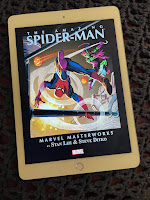 A few years ago, I wrote the following review of Thomas Pynchon's novel "Inherent Vice" and posted it on Amazon. I'm not sure if I re-posted it here, during the early days of this blog, but- even if I did- an occasional rerun is allowed, right? Anyway, the reason it's here now is because the movie version of the book, directed by the always interesting Paul Thomas Anderson, will be out soon, and I thought readers might enjoy some thoughts about the book. I did have problems with the novel, as you'll see, but I'm still looking forward to the movie. The trailer is available to view on the 'net and the movie looks well-crafted, well-acted, and pretty funny. In any event, here's what I thought of the book...
A few years ago, I wrote the following review of Thomas Pynchon's novel "Inherent Vice" and posted it on Amazon. I'm not sure if I re-posted it here, during the early days of this blog, but- even if I did- an occasional rerun is allowed, right? Anyway, the reason it's here now is because the movie version of the book, directed by the always interesting Paul Thomas Anderson, will be out soon, and I thought readers might enjoy some thoughts about the book. I did have problems with the novel, as you'll see, but I'm still looking forward to the movie. The trailer is available to view on the 'net and the movie looks well-crafted, well-acted, and pretty funny. In any event, here's what I thought of the book...Sometimes when a writer of straight-up dramas or literary works takes a crack at the mystery genre, the results can be interesting. I often reflect on Martin Amis' Night Train, for instance. Amis made use of the conventions of the mystery genre without allowing himself to be pulled along by them, ultimately delivering a gangbusters, heartbreaking story that delivered satisfaction by, well... not delivering satisfaction and clarity on every aspect of the story. The lingering mystery of "why...?" on certain character points can be just as resonant as an "Aha!" type explanation, as Amis ably demonstrated. But, just as importantly, he told a clear story along the way to his ambiguity-laced conclusion.
But we're talking about Thomas Pynchon's Inherent Vice, aren't we? Anyway, the thing starts out well, and throughout delivers much value: lots of well-drawn, imaginative scene setting, description, and characterizations (Doc, the central character, is both smart and ridiculous), but soon the story gets so complicated and meandering that all one can really enjoy are individual scenes, which- to be fair- are often quite well-crafted. However, any momentum, novel-wide architectural craftsmanship that builds on what has gone before, etc., occurs in minimal fashion.
So, Pynchon doesn't even get to the point where he has to choose between haunting mysteriousness and total explanation in the resolution, because the hundreds of pages of story before the closing sections are muddled and unclear already. In other words, while the resolution in Night Train produced many questions to think about afterward, Amis' comprehensible, well-crafted story clearly laid out those questions beforehand... we easily followed what was going on up until the ultimate questions are laid at our feet. Pynchon doesn't do that; his whole story is all over the map.
To be clear (can't resist that), Inherent Vice offers some good banter, observation (especially of the cynical variety), humor, and the imaginative description I mentioned before, but in the end the book was a chore. Not as painful as other chores, but- with its muddled story and muddled final viewpoint- a chore nonetheless. The book does work as a kind of mood piece, I'll give it that. And if that's enough for you, give it a shot. For me, Inherent Vice fell into the trap of many literary works: it disregarded craft in favor of self-conscious artiness. And that can often result, as it did in my case, in frequent distraction and yawns.




No comments:
Post a Comment